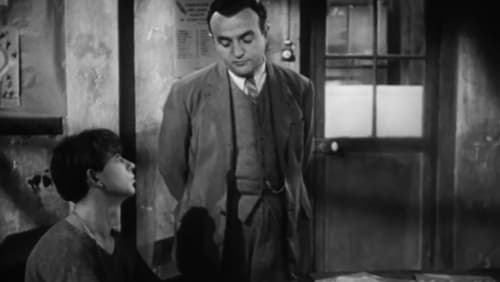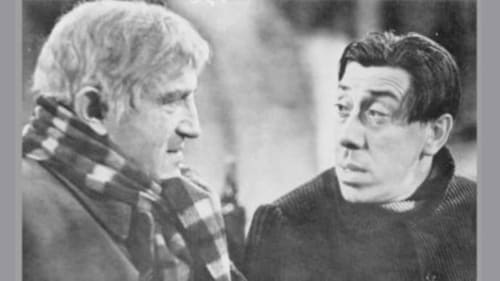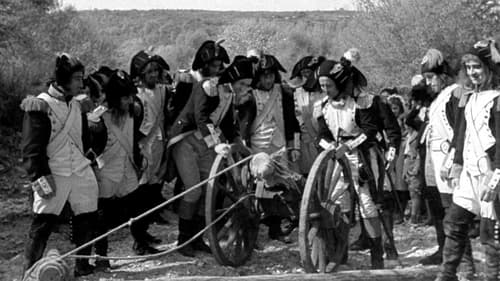Jean Aquistapace
Nascimento : 1882-08-22, Nice, Alpes-Maritimes, France
Morte : 1952-10-20

The antique dealer La Verdière

Madame Millois, an ambitious mother, thinks she has found the perfect match for her daughter Arlette, Count de Tremblay-Matour. Alas, the ideal husband happens to be a crook. On the night of the wedding, the fake nobleman robs his wife and abandons her. While the outraged Madame Millois looks for the real Count de Tremblay, Arlette seeks consolation with Maxime, a childhood friend. At last, the real count is found. Unsurprisingly, he is furious to learn that, legally, he is Arlette's husband. After a while though, he mellows and accepts to "remain" Arlette's husband.

The uncle
On the very day of his wedding, Valentin Le Barroyer sees the one he was to marry fly away. Hélène has always loved her cousin André, to the great displeasure of her aunt who had combined the failed marriage. The two lovers take refuge in the Dordogne at the home of Hélène's grandmother who believes them to be really husband and wife. Valentin finds the young couple too late, he only has to console himself with a friend of Hélène's.

Sgt. Sobiesky
Two modest young employees, Jean and Madeleine, dream of leading the way, but the experience turns out badly. Madeleine marries a German aristocrat who turns out to be a spy, and finds Jean who had joined the Legion.

Indigo
Vénus aveugle (Blind Venus) is a 1941 French film melodrama, directed by Abel Gance, and one of the first films to be undertaken in France during the German occupation. Although the film is not set in any specified period, Gance wanted it to be seen as relevant to the contemporary situation in France. He wrote, "...La Vénus aveugle is at the crossroads of reality and legend... The heroine ... gradually sinks deeper and deeper into despair. Only when she has reached the bottom of the abyss does she encounter the smile of Providence that life reserves for those who have faith in it, and she can then go serenely back up the slope towards happiness. If I have been able to show in this film that elevated feelings are the only force that can triumph over Fate, then my efforts will not have been in vain."

Le voyageur
A couple of refugees arrives in a village: he is a cabinet maker, she's pregnant and the innkeeper refuses to give them a room; they wind up in the cowshed of a farm where she gives birth to her baby, the very night of Christmas.

Bruno Ferraz
Siamese twins, separated at birth, maintain a psychic knowledge of each other's dire fates.

(as Aquistapace)
The sentimental adventure of an old bachelor, mayor of his village and owner of a mill, who suddenly falls in love with a 20-year-old Parisian girl. This madness puts his whole house in disarray. Soon the fiancée lets herself be taken in by the charm of the mayor's nephew. The latter, who learns of it, conceives an appalling spite and wants to kill the lovers.

Ternier, le ministre de la justice
Jeune Filles en Detresse (Young Girls in Distress) was director G. W. Pabst's last French production before his (ill-timed) return to Nazi-occupied Austria in 1941. Somewhat reminiscent of Maedchen in Uniform, the story is set in a private girl's school, populated almost exclusively by children from broken homes. Among the few students who can claim family stability is Micheline Presle, but even her happiness is threatened when her lawyer father Andre Luguet inaugurates an affair with stage actress Jacqueline Debulac. With the help of Debulac's daughter Louisa Carletti, Presle is able to break up her father's romance and deliver him into the open arms of her mother Marcelle Chantal. On the whole, the performance by the younger cast members are more convincing than those rendered by the film's so-called adults.

Ramuntcho is a young man who has fallen in with a gang of smugglers, led by Itchoua, who carry their contraband across the border into Spain. He is in love with Gracieuse whose mother, Dolorès, bitterly dislikes Ramuntcho because he was born an illegitimate child. His smuggling activities force him to join the army and he is sent to Saigon and, because of her mother's desire to marry her off to someone else, Gracieuse joins a convent.

Captain Polyte
Claire and Jean are lovers, but Claire's father opposes this union, because Jean is the son of a woman he once knew. Jean becomes a great singer, but doesn't forget Claire.

Paul Giraud, le maire du village
A film about the early part of the French Revolution, shown from the eyes of the citizens of Marseille, counts in German exile and, of course, the king Louis XVI, each showing their own small problems.

A guy from the South spends his time chasing sentimental adventures.

Enrico, the singer
Maryse blackmails her former lovers by threatening to mention their names in her memoirs. But a real blackmailer appears and cashes the checks for him.

Two different young couples marry, despite the wishes to the contrary of their parents.

In Pisa, chance forces an old bookseller out of his isolation. He unleashes the fury of the tenants of his building, he undergoes the rigors of the law and he is involved in the adventure of two lovers whose marriage he arranges.

Under the Directory, Clairette is in love with the chansonnier Ange Pitou, while the hairdresser Pomponnet is destined for her as a husband. But Ange Pitou is flighty and lets herself be seduced by Mademoiselle Lange who wanted to know the author of seditious couplets.

A man creates a national scandal after he mistakenly kisses the wrong woman in a darkened cinema. The following year it was remade as an American comedy One Rainy Afternoon, released by United Artists.

Monsieur de Miranda
Antoine, elevator operator of a haute couture house, takes advantage of an inheritance to lead the high life for three days by pretending to be a rich count.

François, the tramp
The tribulations of a banknote, from its exit from a counter to its destruction, passing through dozens of hands.

M. Marotte
A young aristocrat whose ruined father decided to marry her spends one last night as a bachelor at the boarding school ball. But there, cheerful students strip her of her clothes and she finds refuge precisely with her future husband whom she did not know. Of course, the marriage that was so repugnant to them fills them with joy.

Maurin, an accomplished lady seducer, has acknowledged Césariot as his son. Tonia, Maurin's mistress, is jealous of his love for the boy and follows him one night as he attempts to protect Césariot from the customs officers. But Maurin is shot and dies in Tonia's arms. Based on Jean Aicard's novel.

Stani, le gros mari de Colette
A young man is hit by a car on a zebra crossing. The pretty driver drives him home, takes care of him and falls in love with him. She has a fat, selfish, boorish husband whom she abandons to her imaginary illnesses to marry her nice wounded man.

The maid of a doctor, he had some canvases he didn't care for bestowed on him once by an unknown artist, thankfully has saved them as the paintings are now worth some money and others want them.

A young man, having seduced his friend's mistress, undertakes to leave his wife to the latter for one night, when he is married. A few years later, the friend claims his due and the young man introduces him to his so-called wife.

Poacher, bon vivant and womanizer, Maurin falls in love with the fiancée of a policeman. And despite all the principles, he easily triumphs over his rival.

Le pharmacien
An assistant pharmacist in the South of France , Blaise works for Mrs. Pinède, a well-endowed hot-blooded woman who has developed a crush on him, and her husband ... who hasn't! One day, Blaise meets Felloux, a rich man who is convalescing in Cassis. Felloux takes a liking to Blaise and decides to offer him a perfect day in Juan-les-Pins. Gambling in the casino, Blaise wins an astronomical sum. A new life seems to open to him but not for long. Indeed he loses all, but not before he has given a beautiful necklace to a young woman.























